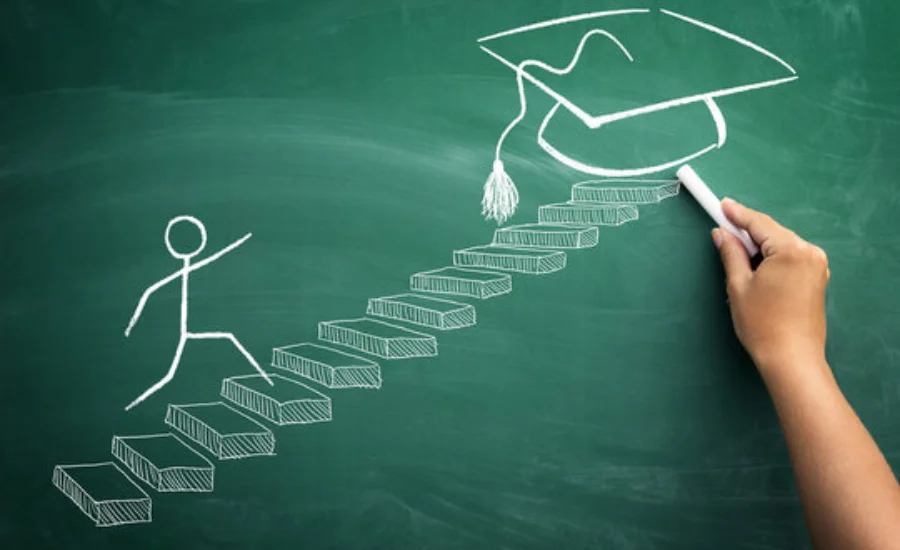As we navigate through the complexities of educational paradigms, the role of joy and recreation in a student’s academic journey often gets overshadowed by traditional teaching methods. However, recent studies have begun to highlight the significance of fun in learning, underscoring its positive impacts on students’ cognitive, emotional, and social development. Striking the perfect balance between enjoyment and education not only stimulates curiosity but also fosters a love for knowledge that extends beyond the classroom. In this article, we delve into how integrating fun with academics can drastically enhance a student’s school experience and academic success. Keep reading to understand the dynamic connection between a playful approach and educational achievement.
Incorporating Game-Based Learning in Education for Better Outcomes
Innovations in educational technology have introduced game-based learning, blending play with academic instruction to engage students in interactive formats. This approach personalizes learning by tailoring challenges to individual abilities, making complex subjects more accessible. For instance, economic simulations can teach supply and demand, while language-focused games enhance vocabulary and grammar without overt instruction.
Game-based learning also fosters soft skills like teamwork and leadership, as students collaborate or compete within game contexts. This method not only makes learning enjoyable but also prepares students for real-world scenarios, offering skills that extend beyond the classroom. Just as online games like slots free can offer a no-risk gaming experience, educational games provide a risk-free way to build essential life skills.
How Positive Emotions from Fun Activities Boost Learning Retention
Emotions play a crucial role in information storage and retrieval, particularly in creating a memorable learning environment. Fun activities in the classroom can generate positive emotions, which enhance memory and attention. The release of dopamine during enjoyable activities improves attention and information processing, creating strong emotional memories that aid in long-term recall.
This emotional imprinting can be observed across different age groups, with elementary students remembering multiplication tables more vividly than those learning through repetition. University students might find historical reenactments more lasting than reading textbook chapters. The shared laughter and joy of classroom fun foster social connections, which are essential for group learning. When students engage deeply with the material, they are more likely to retain and understand it.
The Role of Fun in Enhancing Student Engagement
Engagement in learning thrives when lessons are enjoyable, as fun ignites students’ intrinsic motivation. When classes are lively, students are more attentive, participate actively, and put more effort into their projects, leading to improved academic results and deeper understanding.
Incorporating fun into lessons invigorates teachers and creates a dynamic classroom environment. This approach not only boosts student attendance and enthusiasm but also fosters a supportive classroom community. Such a positive atmosphere encourages students to explore further educational opportunities, such as pursuing a WHNP degree or other specialized fields.
Exploring the Link Between Playful Learning and Cognitive Development
Playful learning is not just a break from academic routines but a significant driver of cognitive development. It helps students develop problem-solving and critical thinking skills, which are essential for academic success. Engaging in interactive play allows children to explore complex concepts intuitively, enhancing their comprehension and application of academic skills.
The theory of experiential learning suggests that experiences that stimulate play and creativity are crucial for understanding and knowledge retention. Playful learning also correlates with improved memory retention, as engaging the senses and emotions through fun activities helps students anchor new information more effectively. Incorporating play in education nurtures a range of cognitive skills, including spatial awareness, mathematical reasoning, and linguistic abilities.
Evaluating the Impact of Fun on Classroom Behavior and Academic Performance
Fun plays a crucial role in classroom dynamics, as students who enjoy learning tend to exhibit positive attitudes and behaviors, reducing disruptive behavior. Incorporating fun into teaching strategies can level the educational playing field for students of all backgrounds, especially those struggling with traditional learning approaches.
Fun engages a broader spectrum of learning styles, ensuring more students can effectively grasp and apply academic knowledge. Schools that prioritize a balanced approach to learning report better behavior and improved academic performance. Regular implementation of enjoyable learning activities leads to better test scores, enhanced problem-solving abilities, and greater comprehension of complex subjects.
Overall, the benefits of incorporating fun into the educational process are clear. It fosters a lively and engaging learning atmosphere, enhances cognitive development, improves retention and engagement, and positively influences academic performance and classroom behavior. Leveraging the joy of learning is not just beneficial—it seems essential for nurturing well-rounded and successful students.

